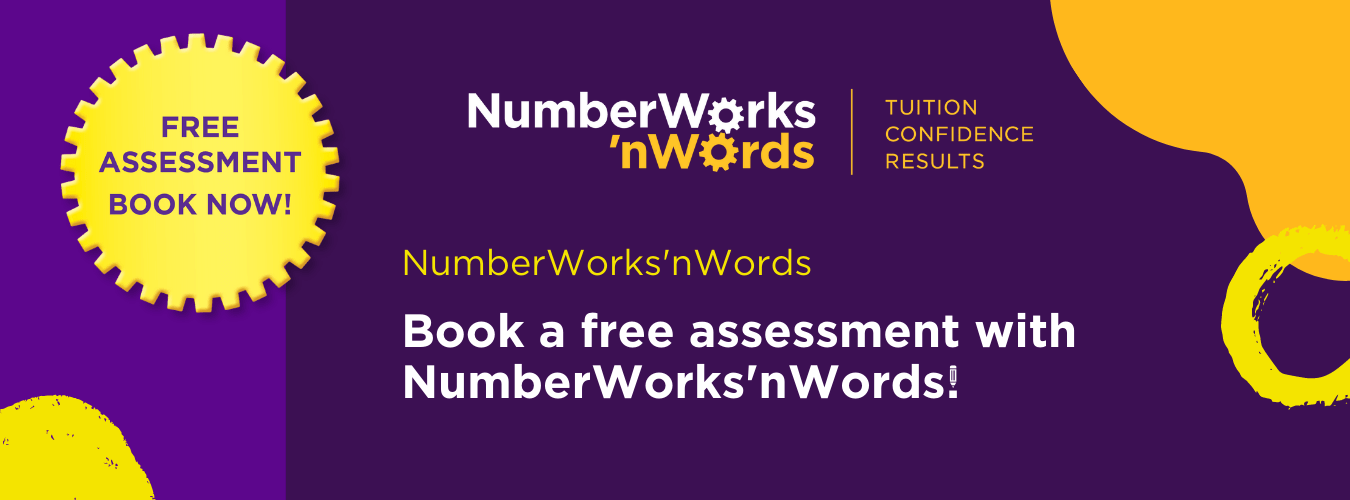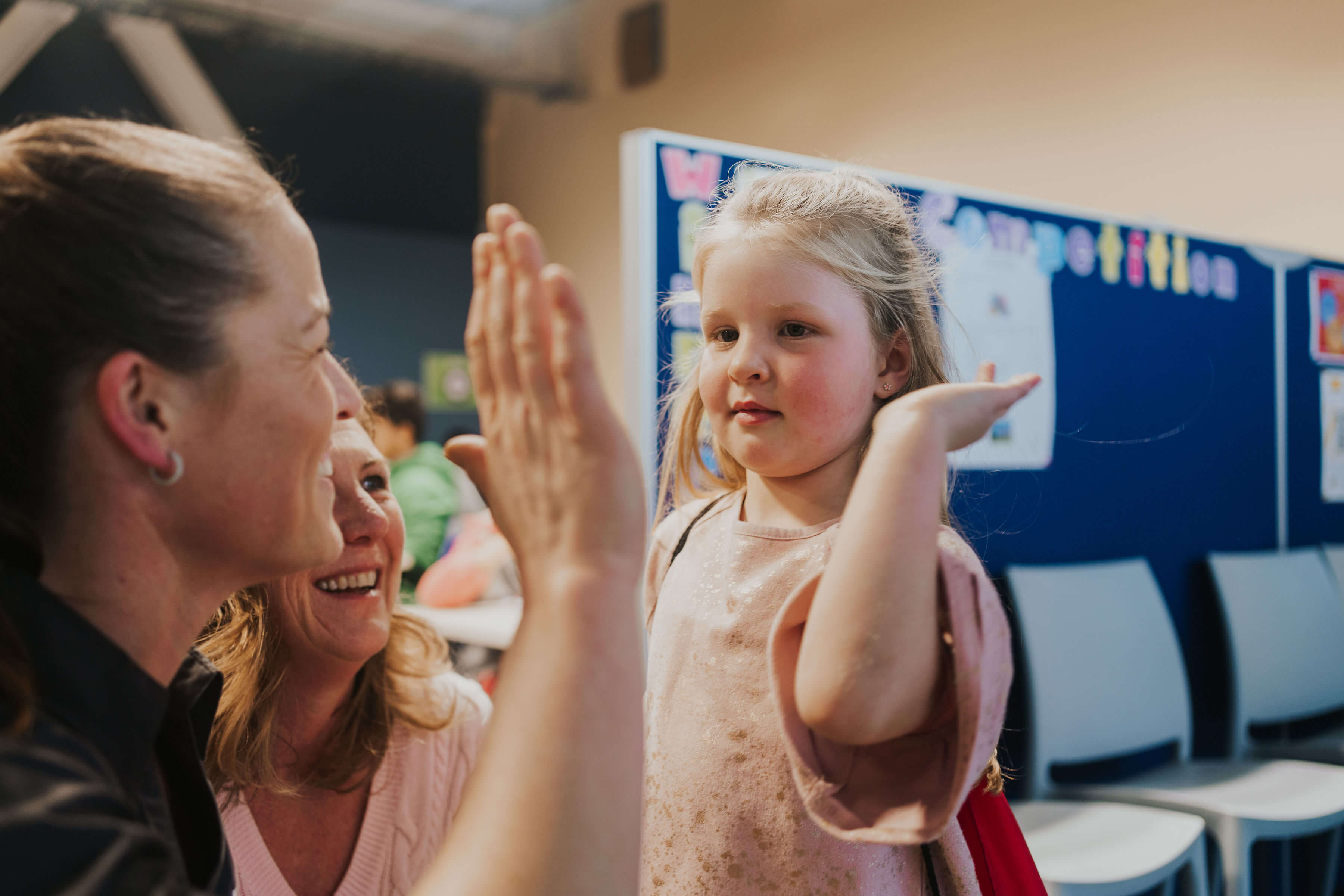Real-Life Skills to Learn
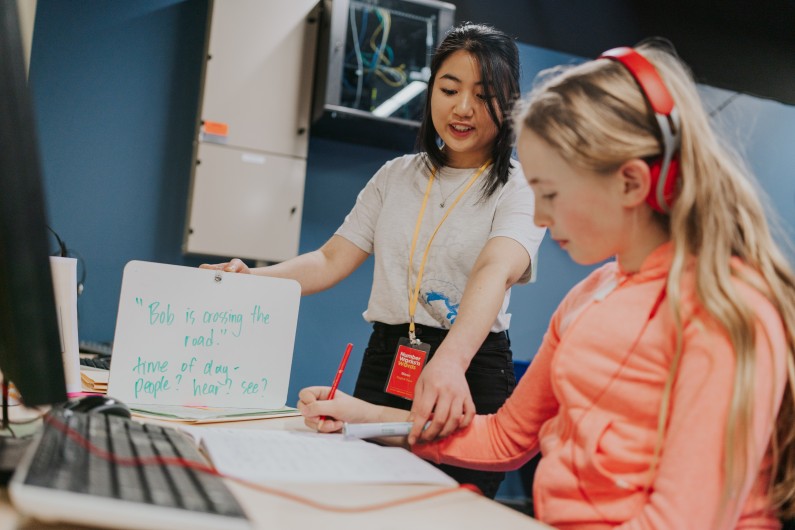
In today's rapidly changing world, it is essential to equip children with real-life skills that go beyond academic knowledge. Teaching kids practical life skills not only prepares children for the challenges they'll encounter in adulthood but also helps children become confident, independent, and successful individuals.
By nurturing these valuable and important life skills, from an early age, we empower children to navigate the complexities of life and thrive in various personal and professional situations.
In this blog, we will explore several real-life skills for children and how you as parents can help your child develop these skills.
Is your child struggling to keep up with schoolwork? Are they falling behind? Are they bored in class? Or are you looking for extension work for your child? Check out our eBook to learn more about how we help your child improve academically and build confidence through our in-centre after-school tuition.
Communication Skills
Effective communication is the cornerstone of success in every aspect of life. Teaching kids good verbal communication skills, such as active listening, speaking clearly, and expressing thoughts and ideas effectively, helps children build strong relationships and convey their needs and opinions with confidence.
Additionally, focusing on nonverbal cues and interpersonal skills, such as body language, posture, and facial expressions, allows children to understand and interpret others' emotions and intentions, enhancing their social interactions and empathy.
Problem-Solving Skills
Problem-solving skills are invaluable for overcoming challenges and making informed decisions. Encouraging critical thinking abilities in children enables children to analyse situations, identify problems, and develop logical reasoning.
By exploring different solutions to everyday tasks and evaluating their consequences, kids can enhance their problem-solving aptitude and become resourceful in many different life skills. Equipping children with decision-making skills also helps children weigh up the pros and cons, consider alternatives, and make choices based on their values and priorities.
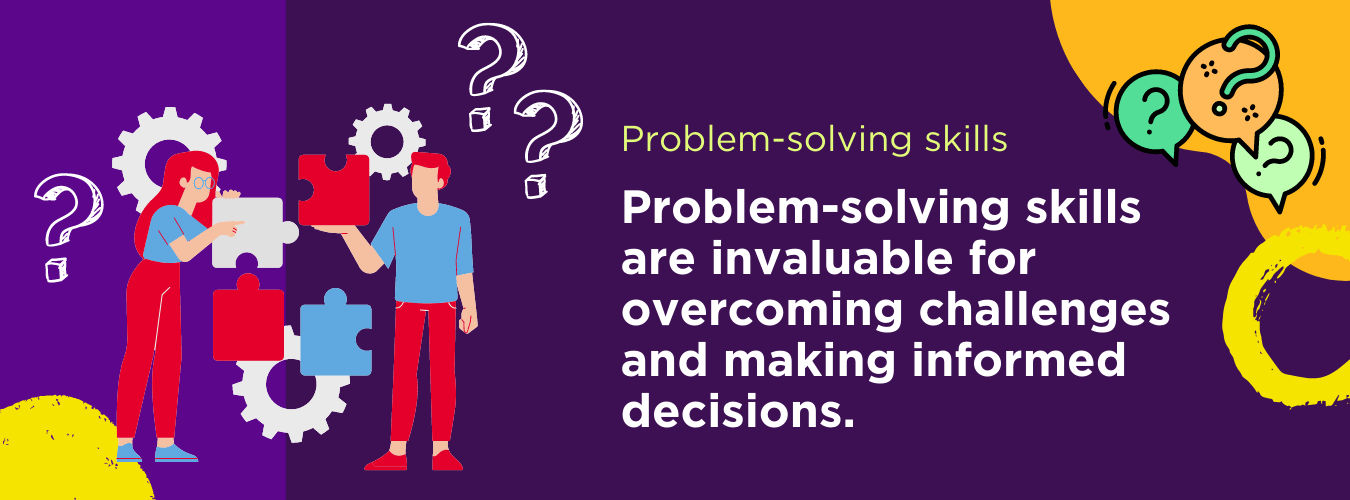
Financial Literacy
Introducing kids to financial literacy equips children with essential money management skills from an early age. Teaching concepts such as budgeting, saving, and setting financial goals enables children to develop responsible spending habits and understand the value of money.
By distinguishing between needs and wants when saving money, kids can make wise financial decisions, cultivate a saving mindset, and grasp the importance of long-term financial planning for achieving their aspirations.
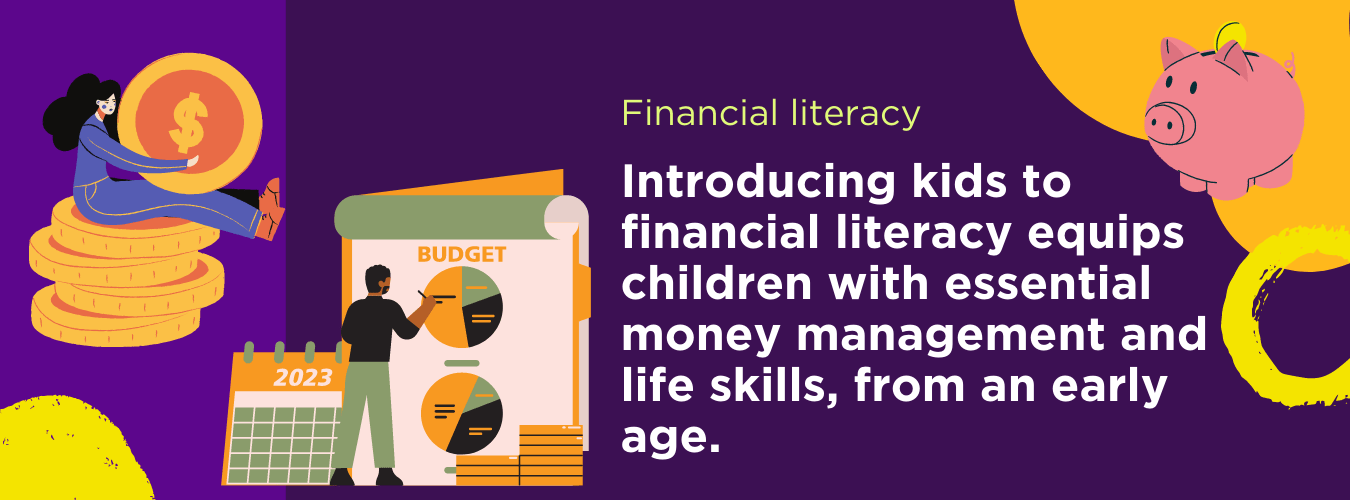
Time Management
Time management skills are vital for organising tasks, setting priorities, and achieving goals efficiently. By teaching children how to prioritise activities based on importance and urgency, they can effectively manage their time and avoid procrastination. Encouraging goal-setting helps kids break down complex tasks into smaller, manageable steps, fostering a sense of accomplishment, self-management, self-awareness, and motivation.
With the ability to manage time, track progress and adjust plans, children develop self-discipline and become better equipped to meet deadlines and fulfil their commitments.
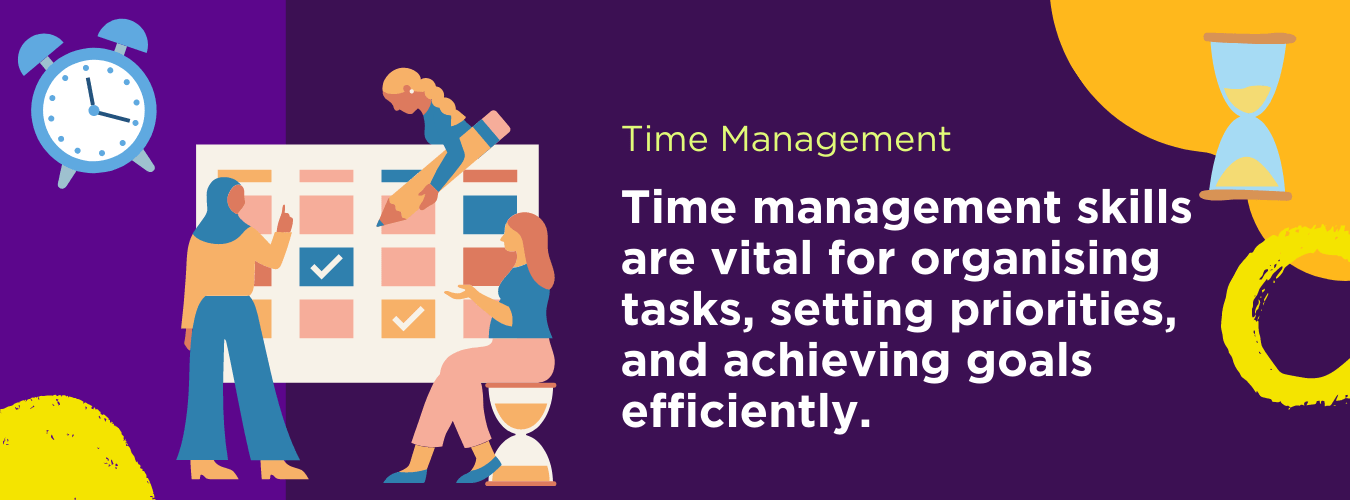
Basic First Aid and Safety
Teaching kids basic first aid skills and safety empowers children to handle emergencies and prioritise their well-being. By recognising common injuries and illnesses, children can respond appropriately and seek help when necessary. Learning basic first aid skills, such as CPR equips kids with the confidence to assist others in critical situations.
Additionally, understanding basic kitchen safety, fire safety, and personal safety instils an awareness of their surroundings, enabling children to navigate their environment with caution and care.
Collaboration and Teamwork
Collaboration and teamwork skills are crucial for success in both personal and professional settings. Encouraging cooperation, compromise, and active listening helps children understand the value of diverse perspectives and resolve conflicts amicably. By promoting effective teamwork, kids learn to divide tasks, communicate within a team, and appreciate the strengths and contributions of others.
Celebrating achievements, making connections, and learning from failures together fosters resilience, adaptability, and empathy, building a strong foundation of essential soft skills for future collaborations.
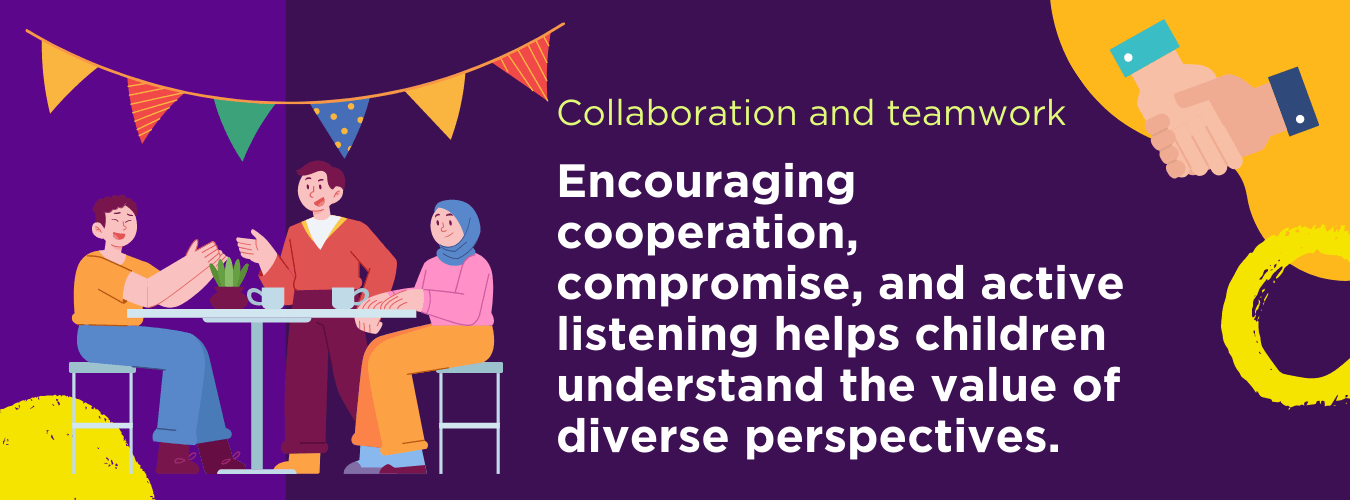
Basic Cooking and Nutrition
Introducing kids to basic cooking and nutrition skills promotes healthy eating habits and self-sufficiency in the kitchen. Teaching kitchen safety ensures children understand how to handle utensils, appliances, and potential hazards. By learning simple cooking techniques and understanding the importance of balanced nutrition, children can prepare nutritious meals independently.
Additionally, introducing healthy meal-planning and grocery shopping teaches children important skills needed to make informed food choices, fostering a lifelong appreciation of taking responsibility for healthy eating.
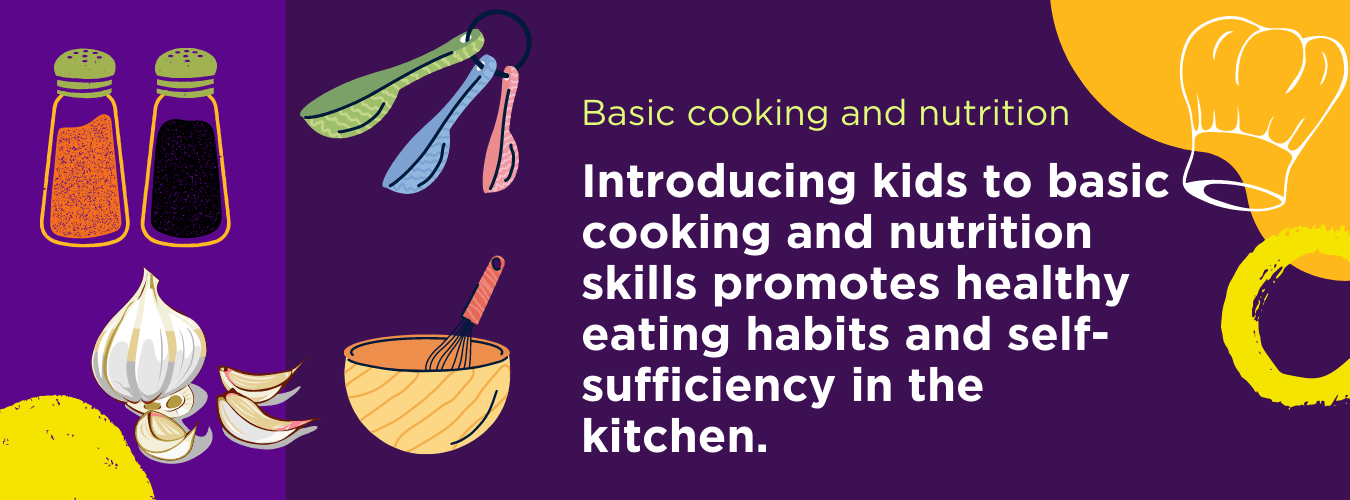
Creativity and Critical Thinking
Nurturing creativity and critical thinking skills in children is essential for their overall cognitive development and ability to adapt to a rapidly changing world. By fostering imagination and originality, children learn to think outside the box, explore their interests, and express themselves creatively. Engaging in arts and crafts activities allow children to experiment with different materials and techniques, fostering a sense of innovation and resourcefulness.
Additionally, developing critical thinking skills empowers children to question, analyse, and evaluate information. By using new skills and encouraging independent thought and perspective kids learn to think critically, make informed decisions, and solve complex problems. These skills lay the foundation for lifelong learning, adaptability skills, and innovation skills in various aspects of their personal and professional lives.
Digital Literacy
In the digital age, it is essential to equip children with digital literacy skills to navigate the online world safely and responsibly. Teaching internet safety, including understanding online risks, protecting personal information, and recognising cyberbullying, helps children develop a strong sense of digital citizenship.
By imparting basic computer skills, internet research techniques, basic etiquette on social platforms, and fact-checking abilities, kids can effectively navigate online information and distinguish reliable sources from misinformation. Promoting responsible digital etiquette encourages respectful online behaviour and fosters a positive online presence.
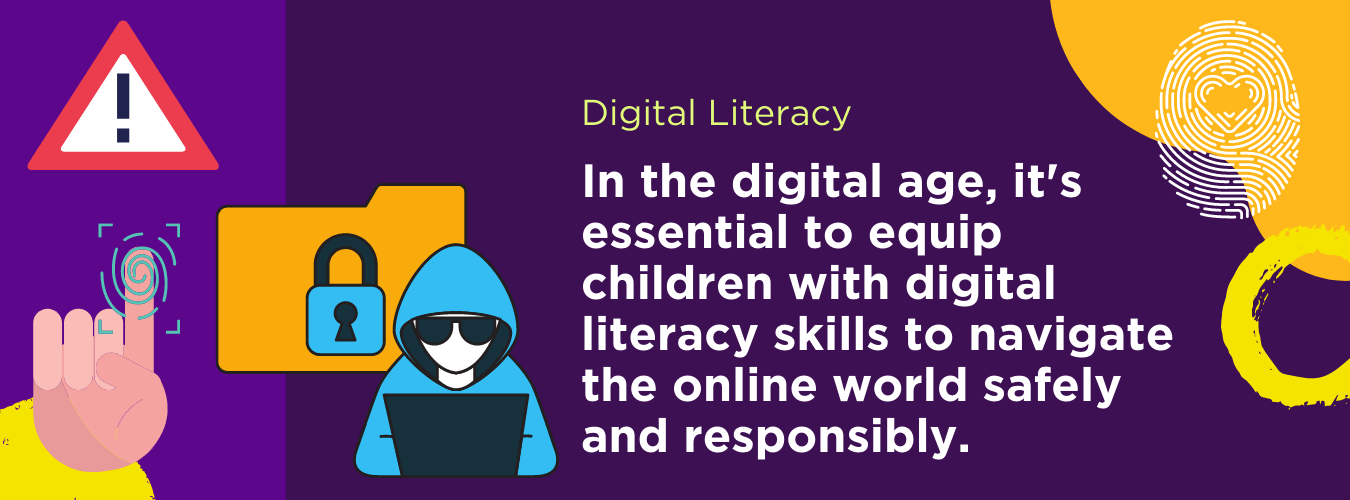
By imparting communication, problem-solving, financial literacy, time management, first aid and safety, collaboration, cooking and nutrition, creativity and critical thinking, and digital literacy skills, we equip children with the tools they need to thrive in various aspects of life.
By investing in young people and their real-life skill development, we set children on a path towards a personal life and a brighter future. Real-world learning is a valuable opportunity to practice skills in everyday life, build healthy habits, have interpersonal relationships, and develop independence, self-confidence, and a sense of responsibility.
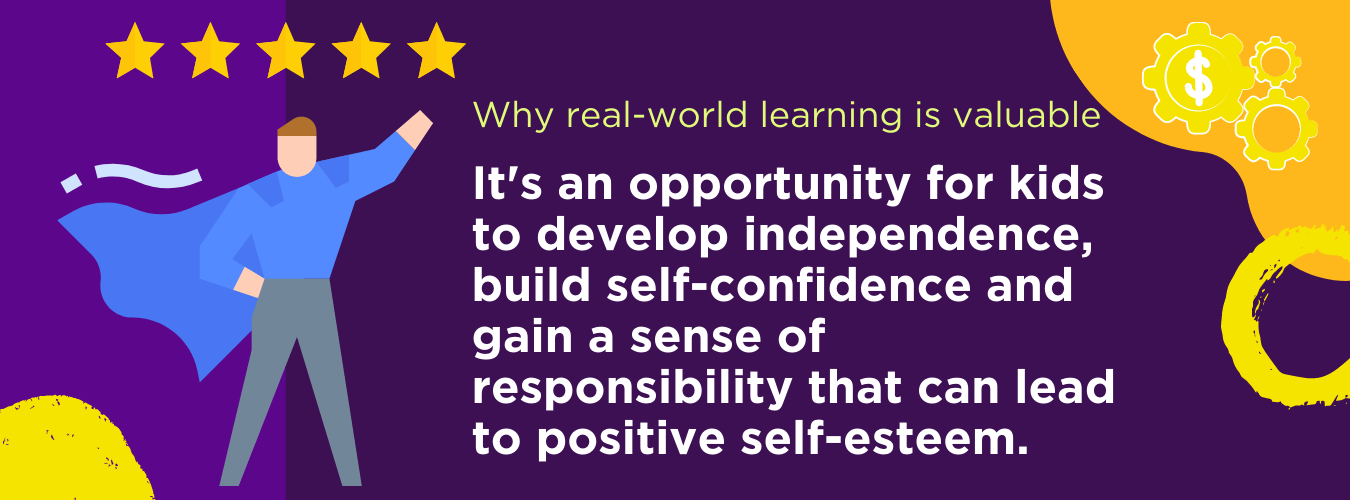
By providing children with real-world learning experiences, we can support children to become resilient, empathetic, and successful individuals who can make a difference in the world.
So, whether it's cooking, caring for pets, or exploring new places, take advantage of every opportunity to incorporate real-world learning into your child's education and what your children grow into responsible, well-rounded individuals.
At NumberWorks'nWords, we provide tuition that in free time covers essential life skills such as reading, comprehension, language, and maths for children aged 5-16, which build the learning foundations your children will need to thrive in real life.
Our outstanding maths and English tuition suits all types of learners; if you would like to learn more about our after-school tuition, get in touch with your local centre, and book a free assessment!
